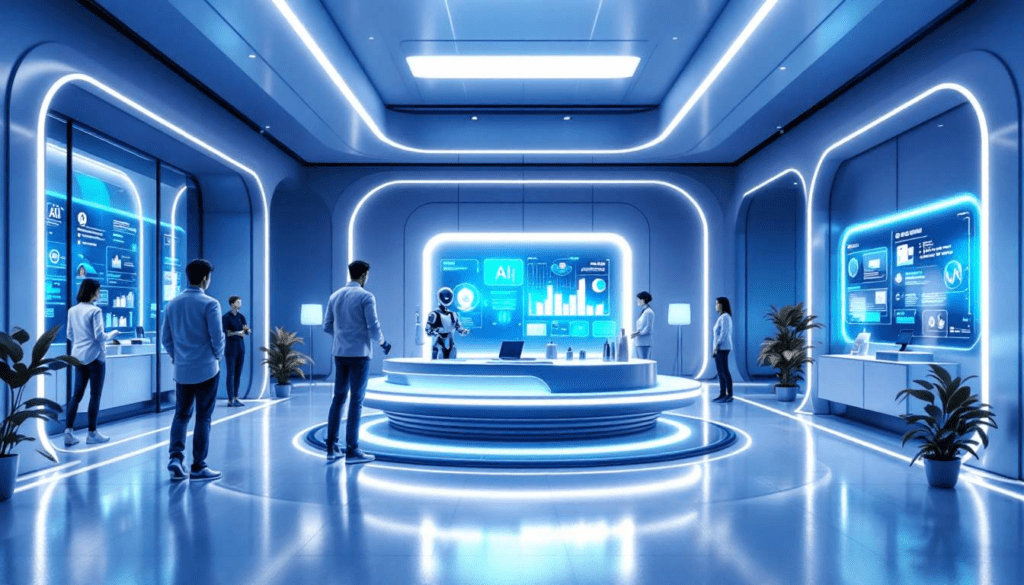In a world where technology is revolutionizing the way we shop, the marriage of artificial intelligence (AI) and blockchain is creating new possibilities. Imagine ordering your favorite coffee just by speaking, while enjoying the convenience of instant transactions. This article takes a closer look at how scalable blockchain technologies like Sui are reshaping retail commerce, increasing the speed of transactions, and harnessing the growing demand for energy resources. Let’s dive into a future where AI and blockchain come together to redefine consumer interactions.
The Synergy of AI and Blockchain in Retail
The blend of AI and blockchain technology is making waves in the retail industry. By harnessing the power of both, retailers can improve transaction efficiency, increase customer engagement and streamline operations. AI algorithms can sift through huge amounts of data to provide personalized recommendations, while blockchain ensures transactions are secure and open. This merger not only builds trust among customers, but also allows retailers to refine their supply chains and reduce operational expenses.
Scalability Challenges: Sui vs. Ethereum vs. Solana
With increasing demand for high-frequency retail transactions, the scalability of blockchain platforms becomes crucial. Sui, with its innovative structure, is designed to handle billions of transactions every day, positioning itself as a serious candidate for retail applications. On the other hand, Ethereum, while robust, faces challenges with its current transaction throughput, limited to 15-30 transactions per second (TPS) on its base layer. Solana, while fast, with up to 65,000 TPS, continues to struggle with decentralization issues. The choice of blockchain infrastructure will significantly influence the efficiency and reliability of retail operations.
Consumer trust and perception of blockchain
Consumer attitudes towards blockchain technology are key to the acceptance of AI-based retail solutions. Trust and transparency are at the heart of blockchain’s appeal, addressing concerns around data privacy and product authenticity. When consumers view blockchain as a trustworthy technology, they are more likely to adopt AI-based retail solutions. However, skepticism and lack of understanding can hinder adoption. Retailers should focus on education and clear communication to highlight the benefits of blockchain-enhanced AI solutions, ensuring consumers feel secure in their transactions.
Energy competition: AI against Bitcoin Mining
The growing competition for energy resources between AI data centers and Bitcoin mining is a pressing issue in the technology sector. As demand for AI capabilities increases, AI data center energy consumption is expected to skyrocket, potentially siphoning a significant amount of mining energy from Bitcoin operations. This transition could affect blockchain operations and energy distribution networks. Retailers should consider the ramifications of this energy rivalry when integrating AI and blockchain solutions, as it can impact costs and sustainability initiatives.
Summary
The fusion of AI and blockchain technology is poised to reshape the retail landscape, increase transaction efficiency and transform the consumer experience. With the emergence of scalable blockchain infrastructures like Sui, they present promising solutions to satisfy the demands of high-frequency retail transactions. However, obstacles such as consumer confidence, scalability and energy competition must be overcome to realize the full potential of these technologies. By prioritizing education, transparency and innovative solutions, retailers can adapt to this evolving landscape and provide consumers with a transparent, efficient and trustworthy shopping experience. The future of retail is bright, driven by the powerful convergence of AI and blockchain.




